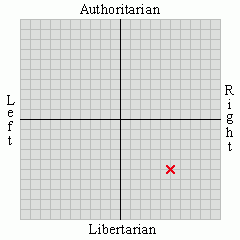Maybe it isn't quite as bad as Mrs R first thought, although she did think, for a little while, that the group achieved what they wanted - as declared on their banners
Freedom of Speech - Go to Hell
Maybe Mr C of Islam4UK will end up in parliament. Stranger things have happened. You see Mrs R spotted the list of names that are proscribed, and amongst them is this one - at the head of the list.
The Irish Republican Army.
Making the IRA a proscribed organisation obviously worked. It worked so well that the IRA was abolished and all the people who used to be members of it went home and did something else. It all worked so well that The New York Times writes about the organisation and its' history, and the State Department Patterns of Global Terrorism 2003 Report, says
The IRA retains the ability to conduct paramilitary operations.The NYT article doesn't mention Sinn Féin, "Considered to be the political arm of the IRA.", and that Sinn Féin's Jerry Adams has a place in Parliament.
Digging a bit further into the rules
(5A) The cases in which an organisation promotes or encourages terrorism for the purposes of subsection (5)(c) include any case in which activities of the organisation—and
(a)
include the unlawful glorification of the commission or preparation (whether in the past, in the future or generally) of acts of terrorism
(5B) The glorification of any conduct is unlawful for the purposes of subsection (5A) if there are persons who may become aware of it who could reasonably be expected to infer that what is being glorified, is being glorified as—
(a)
conduct that should be emulated in existing circumstances, or
(b)
conduct that is illustrative of a type of conduct that should be so emulated.
and
(5C) In this section—Picture a group of imaginary teenagers calling themselves "The Gunpowder Plot". Imagine them having meetings where they discuss blowing up parliament. Imagine them setting up a Facebook Group.
“glorification” includes any form of praise or celebration, and cognate expressions are to be construed accordingly;
“statement” includes a communication without words consisting of sounds or images or both.]
Imagine them spending hours making a few pictures or animations - of gunpowder and noisily exciting explosions - and putting them on Flickr or YouTube. They might add in a few people wearing funny clothes and unusual headgear and then these imaginary teenagers might themselves decide to wear something similar - because they think it looks cool (and different) - and they might even make themselves some badges - to put into their Facebook profiles.
We Rigbys know that teenagers, especially young teenagers, like to do things like this - they like to set themselves apart from boring, stuck-in-the-mud, adults. They often like to talk of doing dangerous, and sometimes very silly, things - but these discussions tend not to travel much further than the settee or the computer chair.
Sadly we also know that there are sometimes teenagers who will fasten bombs to their bodies and blow themselves, and other people, into tiny little pieces. There are also people who will pack cars full of explosives and detonate them remotely - they've been doing it for years. These people are very rare, thank goodness, but it doesn't mean that the security services don't keep an eye out for them. These days they can check phone calls and the internet.
Now let's imagine somebody's watching the internet and looking for 'key words'. I'm told they do this in the hunt for extremists and terrorists, they look for words like "bomb", "explosion" and "blow up".
It would seem that, according to the newest rules, it's possible for a group of youngsters whose sole interest is the history of the gunpowder plot to find themselves on the wrong side of the law, guilty of the "glorification of the commission or preparation (whether in the past, in the future or generally) of acts of terrorism" - after all, what worse act of terrorism can there be than trying to blow up parliament for reasons of religion?
Won't happen? No, of course it won't, because the people who enforce the law are far too sensible to even think of arresting somebody for having a bit of fun, they would never think a harmless interest, hobby or pastime could be terrorism.
As far as Mrs R can tell, the people of Islam4UK did little more than use unpleasant words, they waved a few placards and threatened to get together to have a march. Some other people didn't like what they said, and they didn't like what they said they wanted to do - so now there's a law against it. Now there's "a law against it" there can be bits added to the law using statutory instruments, which is quite handy because nobody ever notices it happening.
Isn't it, maybe, a good job that the laws of sedition have been repealed to protect free speech.
Justice Minister Claire Ward said: "Sedition and seditious and defamatory libel are arcane offences - from a bygone era when freedom of expression wasn't seen as the right it is today.
"Freedom of speech is now seen as the touchstone of democracy, and the ability of individuals to criticise the state is crucial to maintaining freedom.
"The existence of these obsolete offences in this country had been used by other countries as justification for the retention of similar laws which have been actively used to suppress political dissent and restrict press freedom.
"Abolishing these offences will allow the UK to take a lead in challenging similar laws in other countries, where they are used to suppress free speech."





No comments:
Post a Comment